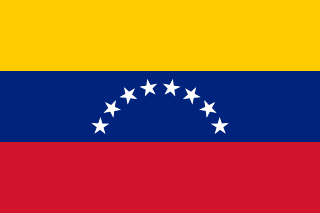Calculation
Only FIBA tournaments consisting of full five-a-side teams are used in calculations for the rankings. Other tournaments, such as regional championships, invitationals, three-on-three half-court basketball, and friendlies are not included.
On October 11, 2017, FIBA radically changed its ranking system for men's national teams when Nike became FIBA's strategic partner. The changes saw the ranking system switching from the previous competition-based system to a game-based system. [5] [6] Every game played by a national team within the last eight years in the World Cup, Olympics, continental championships, and qualifiers for these events is included in the calculations. [7]
FIBA uses a weighted arithmetic mean (with a minimum divisor which is not published [8] ) to determine the average points a team has earned in games in the last eight years.
Rating points per game
A team's final rating points for a particular game is the sum of basis, home/away, and opposition ranking points as follows. [7]
Basis points
Each game in a ranking tournament is initially valued at 1,000 "basis points", divided between the two teams as follows: [7]
| Victory margin | Points to winner | Points to loser |
|---|
| Less than 10 points | 700 | 300 |
| 10–19 points | 750 | 250 |
| 20 or more points | 800 | 200 |
| Forfeit | 800 | 0 |
Home or away points
The basis points are adjusted based on the site of the game, with FIBA calling this adjustment "home or away" points. During the finals of ranking tournaments, only games played by a host team in its own country count as "home" games; all others are treated as neutral-site games. Adjustments are: [7]
| Site of game | Adjustment |
|---|
| Home game | −70 points |
| Neutral venue | No adjustment |
| Away game | +70 points |
Opposition ranking points
The basis points are also adjusted to reflect the strength of the opponent. FIBA determines what it calls "opposition ranking points" by the following formula: [7]
- Opposition ranking points = 1.5 × (average pre-game ranking for all national teams − opponent's pre-game ranking)
Weighting
The new calculations continue to account for the specific tournament and region, as in the former procedure, but no longer explicitly consider a team's final tournament placement. [7]
The rating points of each game (above) are weighted by the game's weight (W), which is the product of the time decay, competition/region, competition stage, and round weights, as follows. [7]
Time decay
In a new feature, a "time decay" factor has been introduced into the calculations. More-recent games carry the greatest weight, steadily declining until falling out of the calculations after 8 years: [7]
| Time of game | Weighting |
|---|
| Current year (Y) and immediately previous year (Y−1) | 1.0 |
| Y−2 and Y−3 | 0.75 |
| Y−4 and Y−5 | 0.5 |
| Y−6 and Y−7 | 0.25 |
Competition and region weights
Each game has a specific "competition and region weight", with continental competition and FIBA World Cup qualification games assigned the weight of the respective region. FIBA World Ranking weights for men's events: [7]
From 2017 forward, FIBA Asia and FIBA Oceania members compete for a single regional championship under the FIBA Asia banner. [9] Results from before 2017, during which FIBA Asia and FIBA Oceania held separate championships, will continue to figure into the rankings (until 2025 via "time decay"). [7]
Competition stage weight
In a new feature, FIBA also weights game results by the "competition stage weight". [7]
Round weight
Additionally, FIBA has added a "round weight" (R) to the system, giving each victory in a final tournament (World Cup, Olympics, or continental championship) a weighting based on the round in which it takes place, with later round wins weighted more greatly. Games in pre-qualifiers, qualifiers and results of the losing team in final tournaments all carry a round weight of R=1. [7]
| Round | Weight |
|---|
| 1 | 1.0 |
| 2 | 2.0 |
| 3 | 4.0 |
| 4 | 6.0 |
| 5 | 6.0 |
While different tournaments have different formats, the semi-finals are usually round 3 or 4, while the final is usually round 4 or 5.
Cycle and updates
Rankings are now updated after every individual game in a ranking tournament (including qualifiers for such tournaments).

The FIFA Men's World Ranking is a ranking system for men's national teams in association football, led by Argentina as of April 2024. The men's teams of the member nations of FIFA, football's world governing body, are ranked based on their game results with the most successful teams being ranked highest. The rankings were introduced in December 1992, and eight teams have held the top position, of which Brazil have spent the longest time ranked first.

The FIBA Basketball World Cup is an international basketball competition between the senior men's national teams of the members of the International Basketball Federation (FIBA), the sport's global governing body. It takes place every four years and is considered the flagship event of FIBA.
The Philippines men's national basketball team, commonly known as Gilas Pilipinas, is the basketball team representing the Philippines. The team is managed by the Samahang Basketbol ng Pilipinas.

The Estonia men's national basketball team represents Estonia in international basketball matches. They are controlled by the Estonian Basketball Association. The team competed in their first international tournament at the 1936 Olympic Games. Estonia has also qualified for the EuroBasket six times overall, with their best results coming in 1937 and 1939. However, after 1939, Estonia halted national team activities due to the occupation of the Baltic states during World War II. Estonia would later rejoin FIBA in 1991, after regaining independence from the Soviet Union.

3x3 basketball is a variation of basketball played three-a-side, with one backboard and in a half-court setup. According to an ESSEC Business School study commissioned by the International Olympic Committee, 3x3 is the largest urban team sport in the world. This basketball game format is currently being promoted and structured by FIBA, the sport's governing body. Its primary competition is an annual FIBA 3X3 World Tour, comprising a series of Masters and one Final tournament, and awarding six-figure prize money in US dollars. The FIBA 3x3 World Cups for men and women are the highest tournaments for national 3x3 teams. The 3x3 format has been adopted for both the 2020 Summer Olympics and 2022 Commonwealth Games.

The 2019 FIBA Basketball World Cup was the 18th tournament of the FIBA Basketball World Cup for men's national basketball teams, held from 31 August to 15 September 2019. The tournament was hosted in China and was rescheduled from 2018 to 2019, becoming the first since 1967 that did not occur in the same year as the FIFA World Cup. The tournament expanded from 24 to 32 teams.

Belarus competed at the 2016 Summer Olympics in Rio de Janeiro, Brazil, from 5 to 21 August 2016. It was the nation's sixth consecutive appearance at the Summer Olympics in the post-Soviet era.

The People's Republic of China competed at the 2016 Summer Olympics in Rio de Janeiro, Brazil, from 5 to 21 August 2016. This was the nation's tenth appearance at the Summer Olympics since its debut in 1952.

Venezuela competed at the 2016 Summer Olympics in Rio de Janeiro, Brazil, from 5 to 21 August 2016. It was the nation's eighteenth consecutive appearance at the Summer Olympics.
The FIBA Women's World Ranking is the FIBA's rankings of national women's basketball teams. FIBA ranks women's national teams in both senior and junior competitions. It also publishes combined rankings for all competitions involving both sexes.

The People's Republic of China competed at the 2020 Summer Olympics in Tokyo, Japan. Originally scheduled to take place from 24 July to 9 August 2020, the Games were postponed to 23 July to 8 August 2021 because of the COVID-19 pandemic. It was the nation's eleventh appearance at the Summer Olympics since its debut in 1952. The opening ceremony flag-bearers for China are volleyball player Zhu Ting and taekwondoin Zhao Shuai. Sprinter Su Bingtian, who broke the Asian record of 100 m during the Games, is the flag-bearer for the closing ceremony. The delegation competed in all sports except baseball (softball), handball, and surfing.

Serbia competed at the 2020 Summer Olympics in Tokyo. Originally scheduled to take place from 24 July to 9 August 2020, the Games were postponed to 23 July to 8 August 2021, due to the COVID-19 pandemic. It was the nation's fifth appearance at the Summer Olympics as an independent nation.

The Czech Republic competed at the 2020 Summer Olympics in Tokyo. Originally scheduled to take place from 24 July to 9 August 2020, the Games were postponed to 23 July to 8 August 2021, because of the COVID-19 pandemic. It was the nation's seventh consecutive appearance at the Summer Olympics after splitting from the former Czechoslovakia.

Mongolia competed at the 2020 Summer Olympics in Tokyo. Originally scheduled to take place from 24 July to 9 August 2020, the Games were postponed to 23 July to 8 August 2021, because of the COVID-19 pandemic. Since the nation's debut in 1964, Mongolian athletes have appeared in every edition of the Summer Olympic Games, with the exception of the 1984 Summer Olympics in Los Angeles, because of its support of the Soviet boycott.

Romania competed at the 2020 Summer Olympics in Tokyo. Originally scheduled to take place from 24 July to 9 August 2020, the Games were postponed to 23 July to 8 August 2021, because of the COVID-19 pandemic. Since the nation's participation started in 1900, Romanian athletes have appeared in every edition of the Summer Olympic Games, except for two occasions: the 1932 Summer Olympics in Los Angeles at the period of the worldwide Great Depression, and the 1948 Summer Olympics in London.

Nigeria competed at the 2020 Summer Olympics in Tokyo. Originally scheduled to take place from 24 July to 9 August 2020, the Games were postponed to 23 July to 8 August 2021, because of the COVID-19 pandemic. Since the nation made its debut in 1952, Nigerian athletes have appeared in every edition of the Summer Olympic Games, with the exception of the 1976 Summer Olympics in Montreal because of the African boycott.

Australia is scheduled to compete at the 2024 Summer Olympics in Paris from 26 July to 11 August 2024. Australian athletes have appeared in every Summer Olympic Games of the modern era, alongside France, Great Britain, Greece, and Switzerland. As Brisbane will stage the 2032 Summer Olympics, Australia and the United States, the next nation to host the 2028 Summer Olympics in Los Angeles, will march before the homebound French team enters Place du Trocadéro during the parade of nations segment of the opening ceremony.

Germany is scheduled to compete at the 2024 Summer Olympics in Paris from 26 July to 11 August 2024. It will be the nation's ninth consecutive appearance at the Summer Olympic Games after its reunification in 1990.

Belgium is scheduled to compete at the 2024 Summer Olympics in Paris from 26 July to 11 August 2024. Since the country's debut in 1900, Belgian athletes have appeared in every edition of the Summer Olympic Games except for the sparsely attended St. Louis 1904.

Serbia is scheduled to compete at the 2024 Summer Olympics in Paris from 26 July to 11 August 2024. It will be the nation's sixth appearance at the Summer Olympics as an independent nation.
















